Iranian Activists Decry Regime's Focus On Hijab
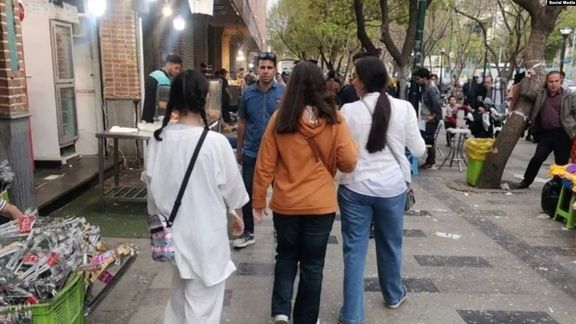
A joint statement has been issued by 170 prominent political, social, and cultural activists in Iran condemning the Islamic Republic's governance priorities.

A joint statement has been issued by 170 prominent political, social, and cultural activists in Iran condemning the Islamic Republic's governance priorities.
The group of activists expressed concern over the government's emphasis on the mandatory hijab policy, labeling it as the country's top priority while neglecting pressing issues affecting the nation such as poverty and corruption.
The activists present a damning array of statistics to underscore the severity of the situation. These include “a disturbing 40% increase in suicide rates over the past decade, a mere 14% economic participation rate for women, a 60% growth in households covered by relief committees over five years, and the exclusion of 930,000 students from education in the past year.”
Additionally, high unemployment rates among university graduates and thousands of unnatural deaths, including incidents like traffic accidents, are cited as indicators of the nation's suffering.
Amidst the challenges, the activists argue for a shift in focus towards “organized, disciplined, and non-violent protests, civil disobedience, and the fostering of organized unity among activists, particularly the younger generation.” They emphasize the need for a “unified front to address the significant economic issues plaguing Iran, such as severe inflation, declining purchasing power, and the expansion of poverty.”
Notable figures among the signatories of the statement include Abolfazl Ghadiani, Alireza Rajaei, Keyvan Samimi, and Parvaneh Salahshouri.
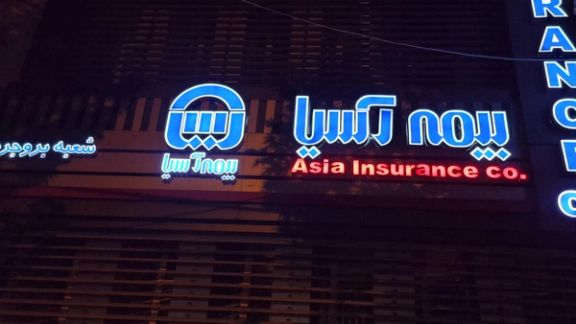
Anonymous hackers are selling 160 million customer information records cobbled together from 23 Iranian insurance companies for approximately $75,000.
The Iranian Leakage Tracking System (Leakfa) has confirmed the validity of the hackers' claim, stating that the information was obtained through a breach of the Expert Information Technologists (Fanavaran) company infrastructure.
The information offered for sale on the dark web includes details such as name, national number, date of birth, address, zip code, and mobile phone, all the data needed to possibly forge identities. The report of the hack first was published by a Telegram channel in August.
Since August, Fanavaran Company, which describes itself as "the largest information technology company in the insurance industry in Iran", has blocked internet access to its website.
Mehdi Imanimehr, Deputy Chief Executive Officer of the company questioned the validity of the hacking, in an interview with the Digiato website. But he also emphasized that he does not have the legal authority to comment on the matter.
Iran's Central Insurance Company (CIC), a regulatory body for the Iranian insurance industry, had denied the hacking in a statement published weeks after the news broke out.
However, in September, the Economy Minister dismissed the CIC's head Majid Behzadpour, and appointed Ali Ostad Hashemi to the position.
The new head's appointment has been the subject of considerable criticism by insurance activists, according to Etemad News.
As an ally of the Economy Minister, Ostad Hashemi lacks any related job experience in the field, and the Supreme Audit Court of Iran has declared it unlawful for him to perform the job because he also holds another position, Etemad reported in September.
During the new government's tenure that began in 2021, many changes have been made as the downward spiral of government-owned insurance companies intensifies.
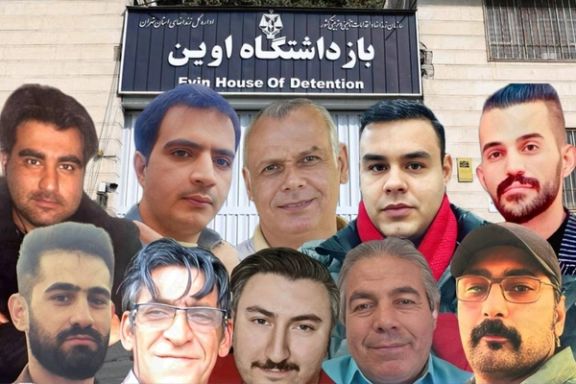
A court session against 11 political prisoners took place on Tuesday at the Revolutionary Court of Tehran in the latest mass trial of anti-regime voices.
No evidence was provided regarding the charges brought against the group, all of whom were detained by security forces between August 1 and November 20.
Among the accused, Kazem Ali-Nezhad, Arsham Rezaei, Meysam Gholami, Vahid Ghadirzadeh, and Payam Bastani-Parizi have previously faced arrests and convictions due to their civil and political activities.
The accused individuals, namely Fatemeh Haqparast, Mohammad-Reza Kamrani-Nezhad, Vahid Sorkh Gol, Kazem Ali-Nezhad Baranlou, Arsham Rezaei, Meysam Gholami, Vahid Ghadirzadeh, Ali-Asghar Hassani-Rad, Saman Rezaei, Payam Bastani Parizi, and Hojatollah Rafei, faced allegations including "conspiracy and collusion to commit crimes against internal/external security, propaganda against the system.
Charges also included insulting Ali Khamenei, the Supreme Leader of the Islamic Republic, insulting the memory of Ruhollah Khomeini, the founder of the Islamic Republic, and encouraging people to commit crimes against internal/external security," according to reports from the US-based Human Rights Activists News Agency (HRANA).
The Islamic Republic has a history of detaining, torturing, and imprisoning government critics active in civil and political spheres since its establishment. The recent wave of suppressing civil, political activists, and protesters by the government has intensified since the nationwide protests of Iranians against the Islamic Republic began in September 2022, persisting to the present day.
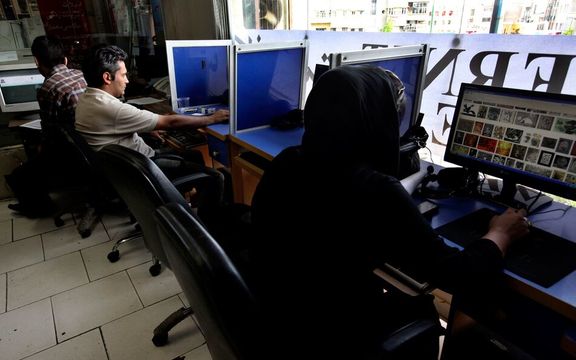
Internet companies in Iran have petitioned the government to increase their broadband and mobile tariffs by 100%, according to Faraz Daily, a pro-reform website.
This request comes at a time when users are experiencing low-quality connections and are forced to pay for expensive Virtual Private Networks (VPNs) and anti-filtering software to avoid the censorship imposed by the government.
For more than two decades, the clerical government has blocked thousands of websites and in recent year, most social media platforms. It also offers very slow Internet connection and often cuts service during protests.
Iran's Information and Communications Technology Minister, Issa Zarepour, stated on Monday that the increase in internet service rates has not yet been decided. He also reiterated his usual response to the issue by insisting that the increase would only happen "if the providers improve the internet quality". But users have long suspected that slow traffic is related to government actions and draconian controls.
Also, the adamant stance he takes on "better quality" might not be entirely genuine. Shargh Daily reported last month that Zarepour publicly opposes increasing Internet rates but behind the scenes is following up on it, neglecting the quality altogether.
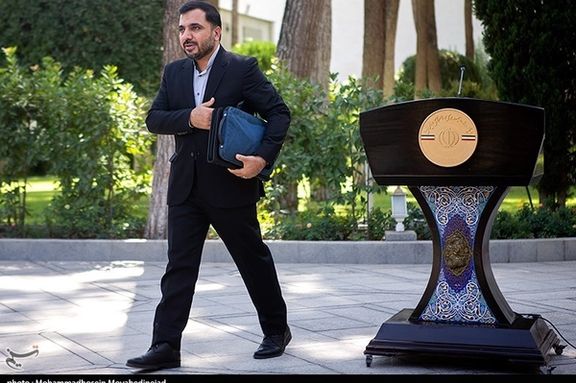
While President Ebrahim Raeisi promised free internet for the lowest income groups during his inauguration in 2021, the number of limitations on internet access and the price have gradually increased.
With these constraints in place, Iranian citizens are deprived of access to free information. Raisi's hardliner government has increased censorship. Numerous foreign and domestic websites, including reputable news outlets and social media platforms, have been added to the government blocking scheme.
The spiral of censorship measures has intensified since the beginning of the "Women, Life, Freedom" movement last year.
According to Freedom House, Iran was the Middle East's worst country for internet freedom in 2023 due mainly to severe and overzealous responses by authorities to nationwide protests.
However, the internet shutdowns and the filtering of popular messaging apps used by citizens continued even after protests subsided.
Legislators, such as Javad Nikbin, have alluded to a connection between those lobbying for internet censorship and those marketing tools that circumvent censorship, such as VPNs.
Lawmaker Jalal Rashidi Kouchi estimated that the financial turnover of VPN providers in Iran amounts to approximately 800 million to 1 billion dollars annually.
According to Kouchi, if the minimum monthly price of a VPN in Iran is $2, the country's citizens would be compelled to spend approximately $480 million annually to circumvent the regime's bans on such services as Instagram and WhatsApp.
But that is not the end of the story. Having a VPN active on your system will result in more data usage since some of that data is consumed by the VPN.
That amount according to the Farazdaily website means half of the traffic you buy from providers is consumed solely by using a VPN. And since the current administration has imposed more limitations, users are already paying more. Not just for more VPN but also more traffic.
With the providers asking for an increase in rates, consumers will be forced to pay yet another fee for "the most expensive low-quality service in Iran".
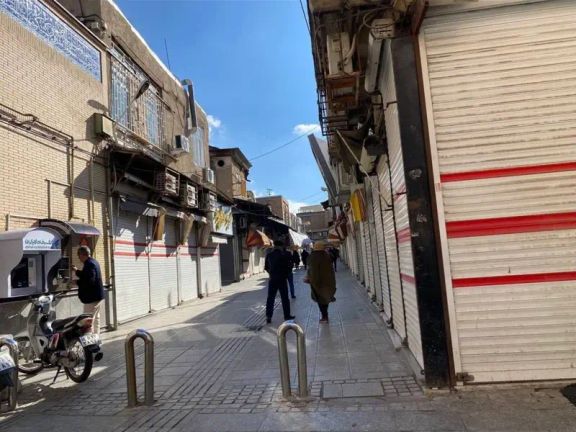
Gold jewelers in different Iranian cities have gone on strike in protest to a possible sales tax increase as the government has ordered registration of all gold transactions.
Over the weekend, the strike spread and transactions in Tehran and several other cities gold market were halted.
Last week, the Iranian National Tax Administration issued a notice, requiring a group of businesses, including gold dealers, to issue electronic invoices to their customers for each transaction beginning December 22.
Gold buyers and sellers were immediately concerned by the announcement, assuming the plan would result in a 25% tax on profits due to government efforts to fill its empty coffers.
Although the Tax Administration announced on Sunday that it has not imposed new taxes and rumors over a "25% tax were not true," the market was far from calm and strikes continued.
Nader Bazrafshan, secretary of the Tehran Jewelry Union, called the Tax Administration's notice "vague" and said that gold dealers are worried that recording the information of every transaction in the system will make them liable to more tax.
Bazrafhsan said that because of concerns over registering transactions, people abstain from buying gold, which has negatively affected the industry even more than it did under Covid.
Iran's President Ebrahim Raisi presented his proposed budget to the parliament in early December, which revealed that tax revenues were expected to be twice the government's oil revenues.
According to the Jahan-e-Sanat Daily, the Iranian government is also counting on an "inflation tax" to fund the budget for the next fiscal year which begins on March 21, 2024.
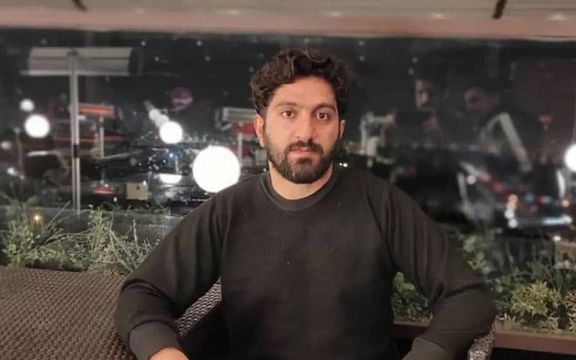
The Supreme Court of Iran has confirmed the death sentence of Reza Rasaei, one of the detainees of last year's nationwide protests, US-based Human Rights Activists News Agency (HRANA) reported.
Rasaei, 34, who comes from the marginalized Kurdish and Yarsan minorities in Iran, was previously sentenced to death by a Revolutionary Court on trumped-up charges related to the killing of an IRGC agent.
A family member of Mr. Rasaei told HRANA that the protester's death sentence was recently confirmed by the “17th branch of the country's highest judicial authority headed by Judge Barani."
Amnesty International issued a warning after his trial and noted that during interrogations Rasaei was subjected to torture and other ill-treatment, including electric shocks and severe beatings to compel him to self-incriminating “confessions”.
Australian lawmaker Keith Wolahan as well as Iranian-American dissident activist Masih Alinejad took to social media to warn of his imminent execution over the weekend.
As revealed by UN's Special Rapporteur on Human Rights in Iran in December, more than half of the people who were killed during the "Woman, Life, Freedom" protests were from Baluch and Kurdish provinces.
As the ongoing Israel-Hamas conflict continues, Iran has executed at least 229 people for various convictions since October 7, according to The Telegraph, including women and minors.
On Sunday, the Iranian High Court confirmed the death sentence of another protester,Mojahed Kourkour.